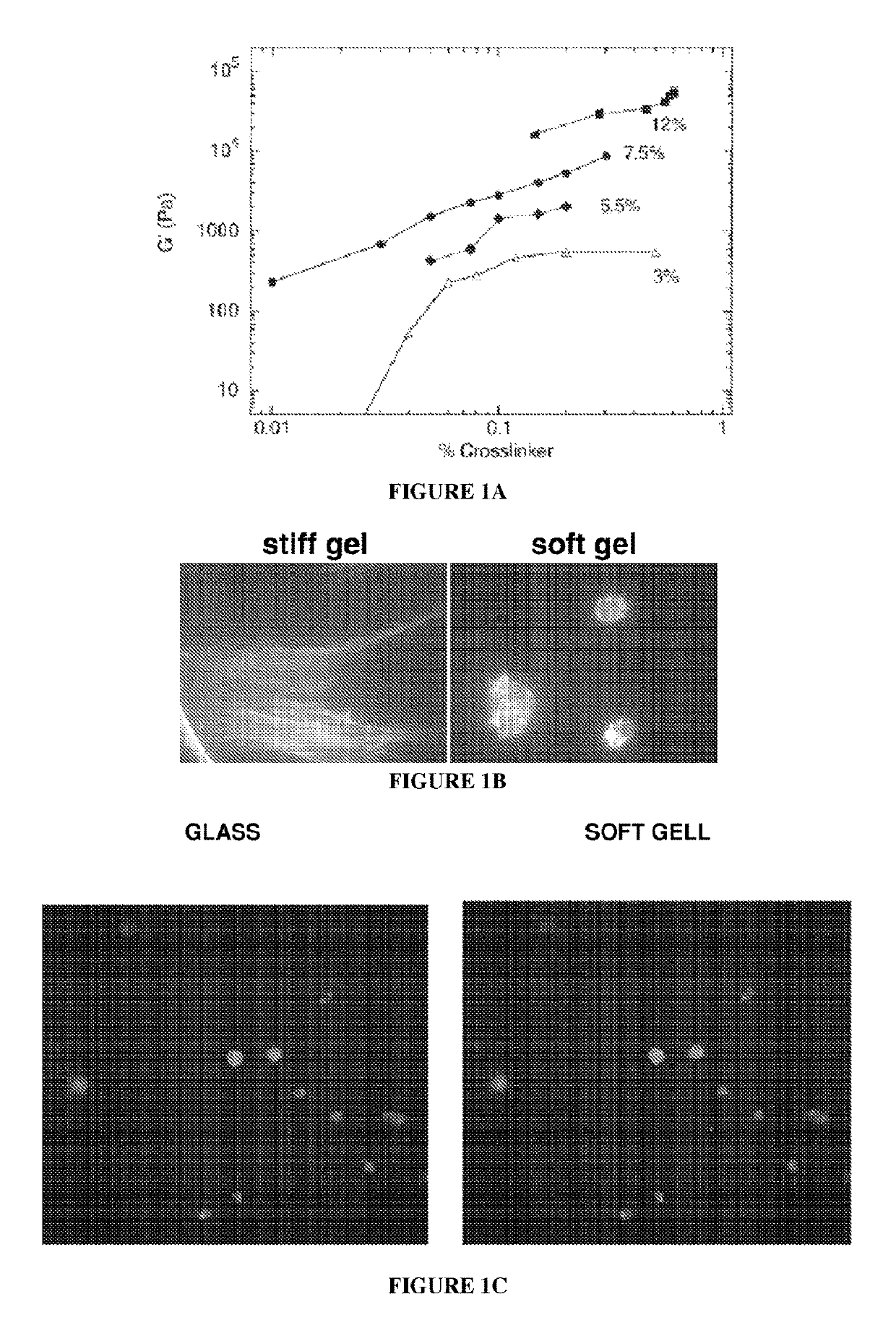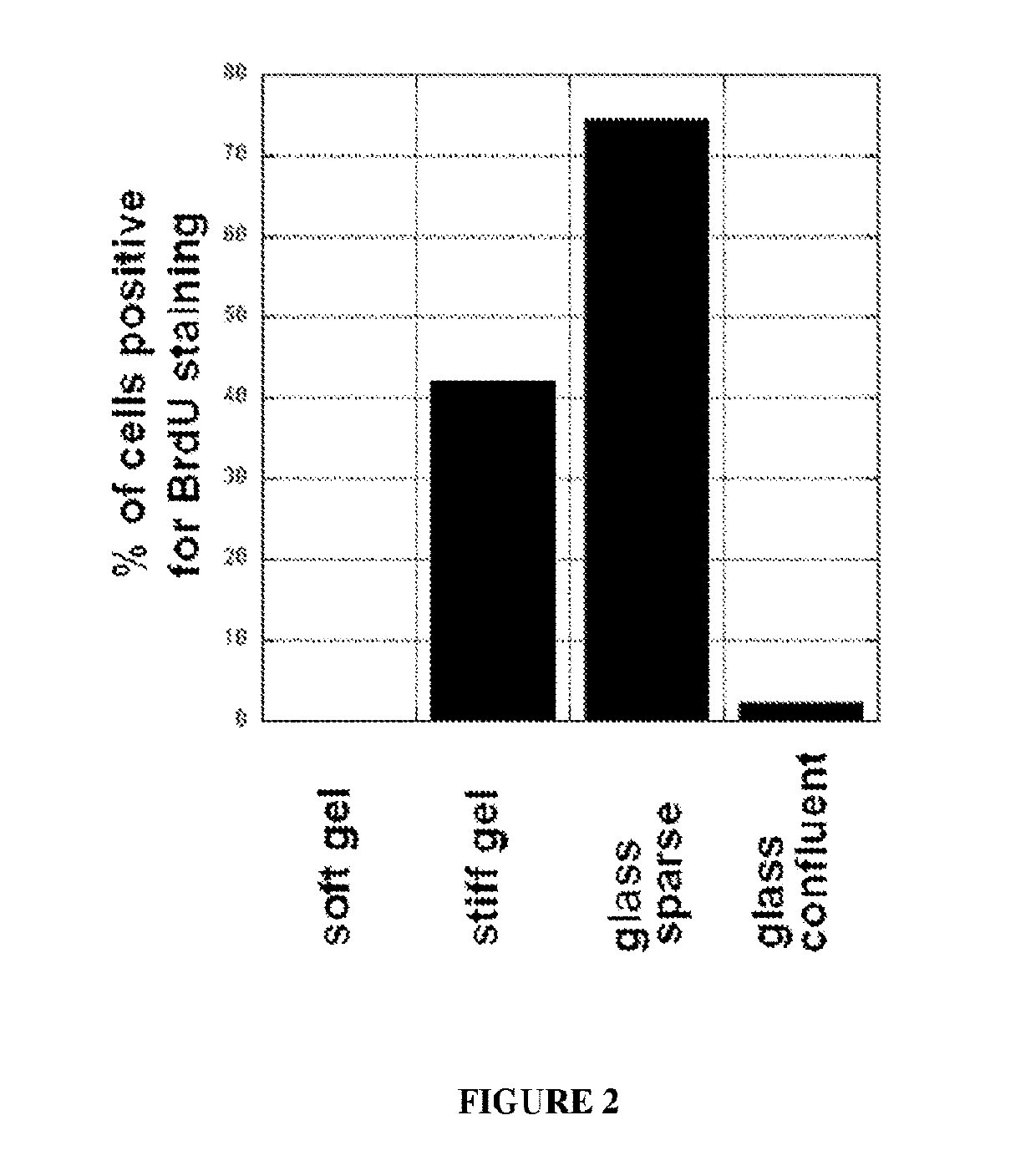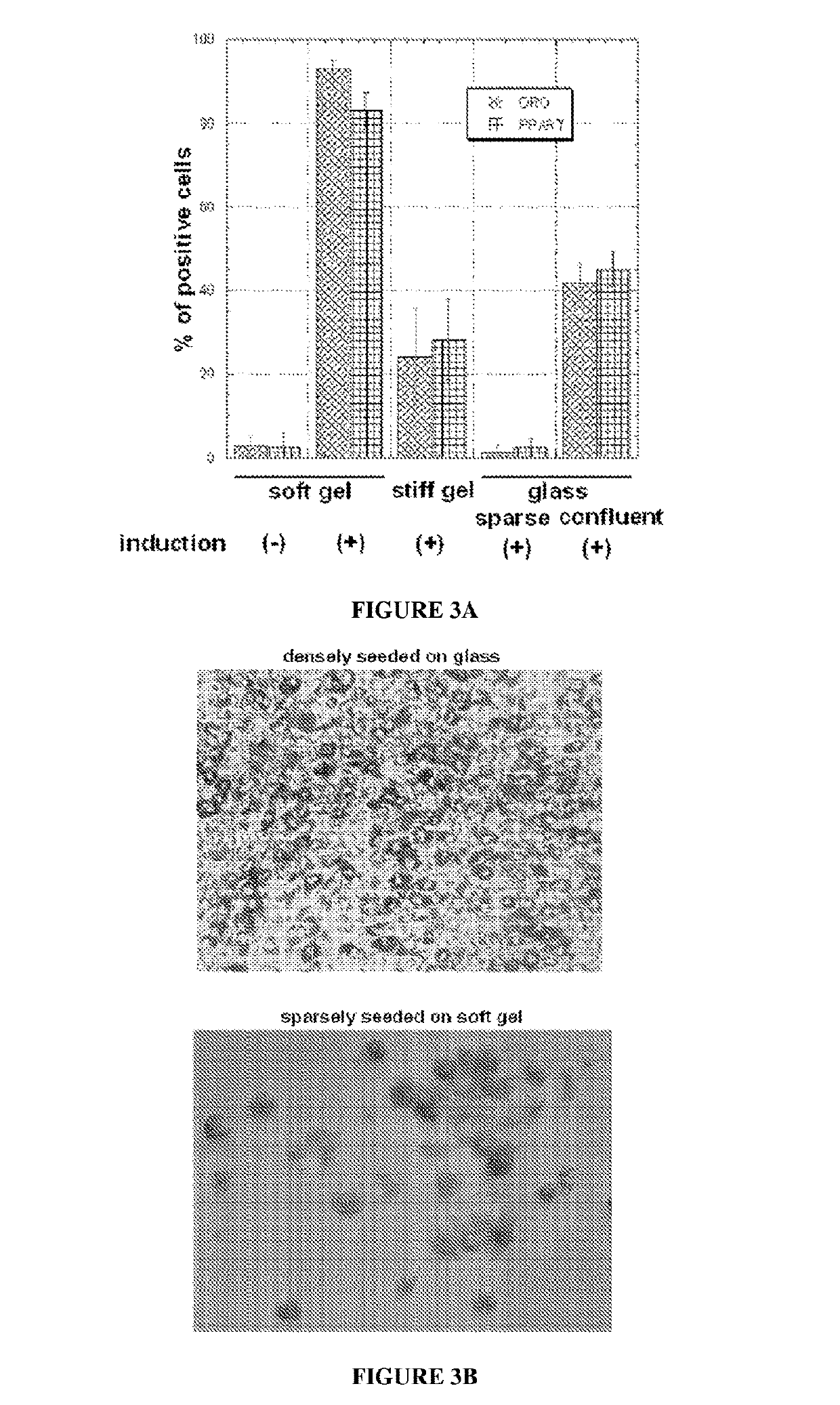Low Rigidity Gels for MSC Growth Modulation
a low rigidity, stem cell technology, applied in the direction of skeletal/connective tissue cells, biochemistry apparatus and processes, microorganisms, etc., can solve the problems of limited application of adult mesenchymal stem cells, limited expansion and engineering, and out-of-control growth
- Summary
- Abstract
- Description
- Claims
- Application Information
AI Technical Summary
Benefits of technology
Problems solved by technology
Method used
Image
Examples
example 1
nt of the Rigidity of Various Tissues and Preparation of Polyacrylamide Gels Approximating the Rigidities of the Tissues
Materials and Experimental Methods
Preparation of Polyacrylamide Gels
[0151]Acrylamide and bisacrylamide (Fisher Biotech, Loughborough, Leicestershire, UK) solutions were prepared to contain a constant polymer mass of 7.5% and bisacrylamide concentrations of 0.01%, 0.03% or 0.3% to alter stiffness. Acrylamide, bisacrylamide, ammonium persulfate, and N,N,N′,N′-tetramethylethylenediamine (TEMED) under a nonaqueous layer of toluene containing 0.5% acrylic acid N-hydroxy succinimide ester (Sigma, St. Louis, Miss.) was polymerized between two coverslips, chemically modified as follows: 200 μl of 0.1 N NaOH was pipetted to cover the surface of a 25-mm-diameter glass cover slip (Fisherbrand, catalog no. 12-545-102; Fisher Scientific, Pittsburgh, Pa.) for 5 min. The NaOH solution was aspirated, and 200 μl of 3-APTMS (3-Aminopropyltrimethoxysilane, Sigma no. 28-1778, Sigma, S...
example 2
e and F-Actin Structure QF hMSC on Soft and Stiff Gels
Materials and Experimental Methods
[0156]hMSC were sparsely seeded on either stiff gels or soft gels coated with collagen type 1 and fibronectin. Cells were incubated for 24 hours in DMEM+10% fetal calf serum, fixed, and stained with Alexa Fluor 488 phalloidin.
Results
[0157]The effect of extracellular matrix rigidity on the shape and F-actin structure of hMSC (human mesenchymal stem cells) was investigated. Cells were incubated in the presence of serum on matrices with various rigidities for 24 hours to allow adherence and spreading. hMSC seeded on stiff gels or glass adopted a spindle shape and exhibited stress fibers and cortical F-actin (as shown by Alexa Fluor 488 phalloidin staining), whereas cells seeded on soft gels exhibited a rounded appearance, lacked stress fibers, and contained F-actin aggregates (FIG. 1B-1C).
[0158]Thus, hMSC sense the rigidity of the extracellular matrix, which influences their shape and F-actin struct...
example 3
n of hMSC Proliferation on Soft Gels
Materials and Experimental Methods
[0159]hMSC were incubated with BrdU (Invitrogen, Carlsbad, Calif.) overnight in the presence of serum. Cells were fixed and immunostained for BrdU (Invitrogen). More than 50 cells were counted for three times in randomly chosen fields.
Results
[0160]5-bromo-2′-deoxyuridine 5′-triphosphate (BrdU) incorporation was measured in hMSC as a marker of cell cycle progression (FIG. 2). Cells were seeded sparsely on soft gels, stiff gels or glass surfaces, all of which were coated with collagen type 1 and fibronectin. As a control, confluent cells on glass surface were also prepared. As expected, hMSC sparsely seeded on glass surfaces efficiently incorporated BrdU, indicating a high level of proliferation. When cells were confluent on glass surface, very few hMSC incorporated BrdU due to a contact inhibition. 42% of hMSC on stiff gels incorporated BrdU, indicating a large population of cells was proliferating, although signif...
PUM
 Login to View More
Login to View More Abstract
Description
Claims
Application Information
 Login to View More
Login to View More - R&D
- Intellectual Property
- Life Sciences
- Materials
- Tech Scout
- Unparalleled Data Quality
- Higher Quality Content
- 60% Fewer Hallucinations
Browse by: Latest US Patents, China's latest patents, Technical Efficacy Thesaurus, Application Domain, Technology Topic, Popular Technical Reports.
© 2025 PatSnap. All rights reserved.Legal|Privacy policy|Modern Slavery Act Transparency Statement|Sitemap|About US| Contact US: help@patsnap.com



